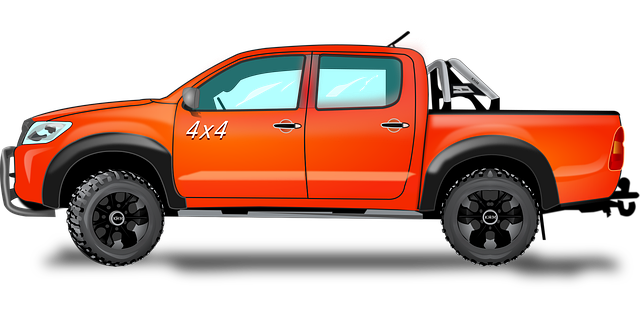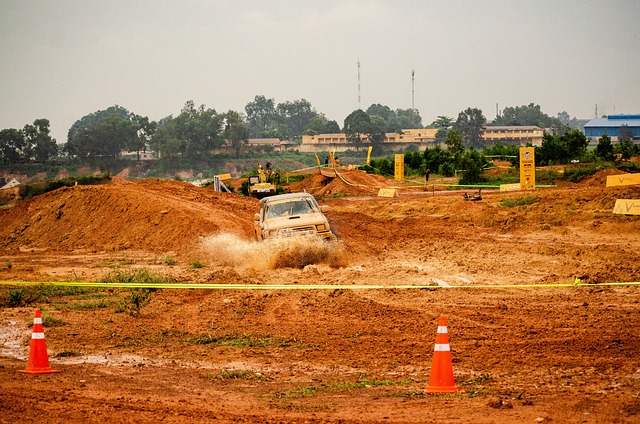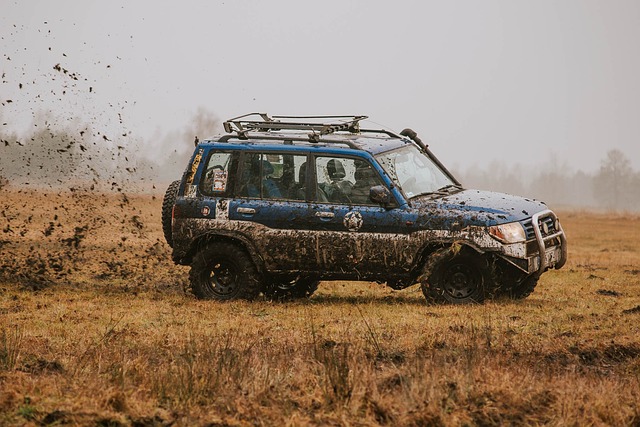Towing chains for Recreational Vehicle (RGV) owners are vital 4×4 parts enhancing off-road capabilities. When choosing a chain, consider steel quality, link pattern for flexibility and strength, and your RGV's towing capacity for compatibility and safety. High-quality chains from reputable manufacturers offer better durability, rust resistance, and reduced failure risk during heavy towing. Select based on weight capacity, terrain type, compatibility with RGV hardware, and length to ensure secure connection and easy manoeuvring.
Towing chains are essential 4×4 parts for rugged vehicles, providing critical connection and stability during heavy towing. This article explores their purpose, types, and selection, installation, maintenance, safety, and upgrades. Learn about different grades, compatibility, load capacity, and quality ratings. Discover accessories like chain tensioners, sway bars, and winches to enhance your RGV’s towing capabilities. Ensure secure, safe, and efficient towing with these valuable insights tailored for 4×4 enthusiasts.
- Understanding Towing Chains: Essential 4×4 Parts for RGV
- – What are towing chains and their purpose in 4×4 vehicles?
- – Types of towing chains: Different grades and uses.
- Choosing the Right Towing Chain for Your RGV
- – Factors to consider when selecting a towing chain: Vehicle compatibility, load capacity, and quality.
Understanding Towing Chains: Essential 4×4 Parts for RGV

Towing chains are among the most essential 4×4 parts for RGV (Recreational Vehicle or Off-Road Vehicle) owners. These robust links of metal are designed to securely attach a tow bar or trailer to your vehicle, enabling you to transport larger items or even other vehicles over challenging terrains. Whether you’re navigating rugged landscapes or simply towing a heavy load across town, reliable towing chains are indispensable for any 4×4 enthusiast.
When choosing towing chains for your RGV, consider factors like chain composition (e.g., steel quality), link pattern (which affects flexibility and strength), and the vehicle’s towing capacity. Ensuring compatibility with your RGV is crucial to prevent damage or safety hazards. Investing in high-quality 4×4 parts like these not only enhances your vehicle’s capabilities but also adds peace of mind when tackling diverse off-road challenges or simply tackling heavy-duty tasks on flat terrain.
– What are towing chains and their purpose in 4×4 vehicles?

Towing chains are essential 4×4-parts-rgv components designed to enhance towing capabilities in off-road vehicles. These robust chains facilitate the secure attachment and movement of trailers or other vehicles, enabling 4×4 owners to navigate challenging terrain with increased stability and control. They are a reliable solution for those who frequently engage in rough terrain driving, providing an added layer of safety and functionality.
– Types of towing chains: Different grades and uses.

Towing chains come in various grades and types, each designed for specific applications and strength requirements. For instance, high-quality steel chains are preferred for heavy-duty tasks such as towing large vehicles or heavy equipment, while lighter, yet robust, chains are suitable for 4x4s and RVs for light to moderate towing needs.
When selecting a towing chain, consider factors like the vehicle’s towing capacity, the weight of the load, and environmental conditions. Chains for 4×4-parts-rv applications typically have a lower link design and are designed to withstand frequent use in rugged terrains. Different grades, such as G3, G4, or G5, offer varying levels of strength and durability, catering to diverse towing demands from light trailers to heavy equipment hauls.
Choosing the Right Towing Chain for Your RGV

When selecting a towing chain for your RGV (4×4-parts-rgv), several factors come into play. The first consideration is the weight capacity; ensure the chain can handle the load you plan to tow without compromising safety. Different terrains also require distinct chains; off-road adventures might necessitate sturdy, heavy-duty options, while lighter chains could suffice for everyday towing tasks.
The type of connection and attachment points are equally vital. Check that the chain’s links and connectors align with your RGV’s hardware to ensure seamless integration. Additionally, consider the length; a suitable length ensures easy manoeuvring and minimal strain on the vehicle during towing.
– Factors to consider when selecting a towing chain: Vehicle compatibility, load capacity, and quality.

When selecting a towing chain for your 4×4-parts-rgv, several crucial factors come into play. Firstly, ensure compatibility with your vehicle’s make and model. Different cars have varying tow hook specifications, so checking these is essential. Secondly, the load capacity must meet or exceed the weight of what you intend to tow, be it a trailer or another vehicle. Lastly, quality is paramount; opt for a chain from reputable manufacturers known for their robust construction and safety features. High-quality chains offer better durability, resistance to rust, and a lower risk of failure during towing, making them a wise investment for your 4×4.
Towing chains are an indispensable 4×4-parts-rgv component for those who venture off-road. By understanding different chain types and carefully choosing one suited to your vehicle and needs, you can ensure safe and reliable towing in various terrains. Remember that the right towing chain not only enhances your 4×4’s capabilities but also adds peace of mind during your adventures.



